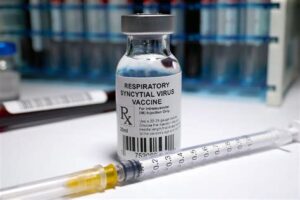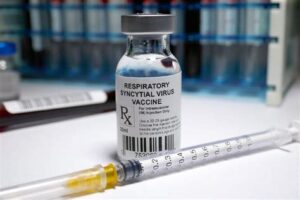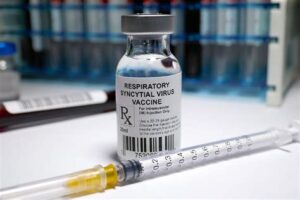Explore the introduction and development of RSV and pneumonia vaccines, along with their effectiveness in preventing respiratory diseases in children and adults.As we navigate the landscape of respiratory health, understanding the differences between the RSV vaccine and the pneumonia vaccine becomes increasingly crucial. Respiratory syncytial virus (RSV) and pneumonia are among the leading causes of respiratory illness, particularly in vulnerable populations such as infants and the elderly. This blog post aims to shed light on both vaccines, exploring their development, effectiveness, and the critical roles they play in disease prevention. By delving into the nuances of each vaccine, we hope to inform readers about their importance in combating these serious respiratory infections, ultimately empowering individuals to make informed decisions about their health and well-being. Join us as we explore the foundational aspects of the RSV and pneumonia vaccines and the impact they have on public health today.
RSV vaccine introduction
The respiratory syncytial virus (RSV) is a major cause of respiratory illnesses, particularly in infants and young children. As the medical community continues to seek effective preventive measures, the RSV vaccine has emerged as a critical focus of research and development.
The RSV vaccine aims to protect vulnerable populations, especially infants, who are at an increased risk of severe respiratory complications due to this virus. RSV can lead to serious conditions such as bronchiolitis and pneumonia, necessitating the need for an effective vaccine to mitigate its impact.
Recent advancements in vaccine technology have paved the way for promising candidates that may soon be available for widespread use. These vaccines are designed to stimulate an immune response, facilitating the body’s ability to combat the virus if exposed. As ongoing studies and clinical trials proceed, the hope is that the RSV vaccine will significantly reduce the incidence and severity of RSV-related illnesses in the future.
Pneumonia vaccine introduction
Pneumonia is a significant global health issue, leading to millions of hospitalizations and deaths each year. Vaccination plays a critical role in preventing this serious disease. The pneumonia vaccine, also known as the pneumococcal vaccine, is designed to protect individuals from infections caused by the *Streptococcus pneumoniae* bacteria, which are responsible for various types of pneumonia.
There are two main types of pneumonia vaccines: the pneumococcal conjugate vaccine (PCV) and the pneumococcal polysaccharide vaccine (PPSV). The former is typically recommended for young children and certain high-risk populations, while the latter is commonly administered to adults and those who are at increased risk of pneumococcal disease. Both vaccines have been shown to significantly reduce the incidence of severe infections and hospitalizations.
In recent years, health organizations around the world have emphasized the importance of vaccination programs to combat pneumonia, especially among vulnerable populations like the elderly and children under five. By increasing awareness and access to effective pneumonia vaccines, communities can significantly lowe
Development of RSV vaccine
The development of the RSV vaccine has been a critical focus in the field of immunology, especially considering the high morbidity and mortality associated with Respiratory Syncytial Virus (RSV) among infants and the elderly. Researchers have explored various approaches to create an effective vaccine, with the aim of providing protection against this pervasive virus.
In the past, several vaccine candidates have been developed, including inactivated virus vaccines, live attenuated vaccines, and subunit vaccines. Among these, live attenuated vaccines have shown promising results in inducing strong immune responses. However, safety concerns, particularly in high-risk populations, have necessitated a cautious approach in their development.
Recent advances in technology have paved the way for innovative strategies, such as the use of mRNA technology. Inspired by the rapid success of mRNA vaccines during the pandemic, this modality has been adopted to create synthetic vaccines that could potentially enhance the immune response against RSV. Clinical trials are currently underway to evaluate the safety and efficacy of these new candidates, providing hope for a robust solution to combat RSV infections.
Development of pneumonia vaccine
The development of pneumonia vaccines has been a significant milestone in public health, aimed at combating one of the leading causes of morbidity and mortality worldwide. The introduction of various pneumococcal vaccines, particularly the pneumococcal conjugate vaccine (PCV), has transformed our approach to preventing pneumonia, especially in vulnerable populations such as children and the elderly.
Research into pneumonia vaccines began in the mid-20th century, leading to the first pneumococcal polysaccharide vaccine (PPV) in the 1970s. This vaccine offered limited protection and primarily targeted adult populations with specific risk factors. However, it wasn’t until the late 1990s that the first conjugate vaccine (PCV7) was developed, providing broader immunity and significantly reducing the incidence of invasive pneumococcal disease in children.
Since then, continuous innovation has led to the development of new formulations such as PCV13 and PCV15, which protect against a greater number of serotypes. Ongoing research aims to increase the effectiveness of these vaccines and explore alternatives that could offer protection against antibiotic-resistant strains of Streptococcus pneumoniae. The future of pneumonia vaccine development holds promise for improved global health outcomes by reducing the burden of this disease.
Effectiveness of RSV vaccine
The RSV vaccine has been a topic of significant interest and research in recent years, especially given the impact of Respiratory Syncytial Virus (RSV) on infants and the elderly. Clinical trials have shown that the vaccine can reduce hospitalizations and severe complications associated with RSV infections.
In studies, the effectiveness of the RSV vaccine has been notable. Recent data suggests that the vaccine can provide up to a 70% reduction in severe RSV infections among infants. This is particularly important given that RSV is a leading cause of respiratory illness in children under two years of age.
As the vaccine continues to be rolled out and further studies are conducted, ongoing monitoring of its effectiveness is essential. The goal is to ensure that the vaccine not only protects against RSV but also fosters herd immunity in the community, thus reducing the overall circulation of the virus.
Effectiveness of pneumonia vaccine
The effectiveness of the pneumonia vaccine has been a crucial topic of research in the field of immunology. The pneumonia vaccine is primarily designed to protect against pneumococcal pneumonia, which is caused by the bacterium *Streptococcus pneumoniae*. This vaccine is vital for vulnerable populations, including the elderly and those with chronic illnesses.
Clinical studies have demonstrated that the pneumonia vaccine can significantly reduce the incidence of pneumonia in vaccinated individuals. According to research, the effectiveness of the vaccine can vary based on factors such as age, underlying health conditions, and the specific strains of the bacteria prevalent in the community. On average, the pneumonia vaccine can reduce the risk of pneumonia by approximately 50% to 70%, depending on these variables.
Moreover, the pneumonia vaccine also plays a critical role in preventing complications associated with pneumonia, such as hospitalization and mortality. Vaccinated individuals are less likely to experience severe symptoms or require intensive medical care. Therefore, promoting the pneumonia vaccine and ensuring widespread vaccination can lead to significant public health benefits.
Frequently Asked Questions
What is the primary purpose of the RSV vaccine?
The RSV vaccine is designed to protect against respiratory syncytial virus, which can cause severe respiratory infections, especially in infants and the elderly.
How does the pneumonia vaccine differ from the RSV vaccine?
The pneumonia vaccine aims to prevent infections caused by Streptococcus pneumoniae bacteria, while the RSV vaccine targets a viral infection.
Who should receive the RSV vaccine?
The RSV vaccine is primarily recommended for infants, young children, and high-risk adults, particularly those with underlying health conditions.
Are there any common side effects of the pneumonia vaccine?
Common side effects of the pneumonia vaccine may include soreness at the injection site, mild fever, and fatigue, which are typically short-lived.
Can adults benefit from the RSV vaccine?
Yes, especially older adults and individuals with weakened immune systems or chronic lung disease may benefit from the RSV vaccine to reduce the risk of severe illness.
What are some risk factors for pneumonia that the vaccine can help mitigate?
Risk factors include age (young children and older adults), chronic illnesses, smoking, and weakened immune systems, all of which the pneumonia vaccine can help protect against.
How often should the pneumonia vaccine be administered?
The pneumonia vaccine schedule varies; the polysaccharide vaccine is typically given once, while the conjugate vaccine may require several doses in childhood.





